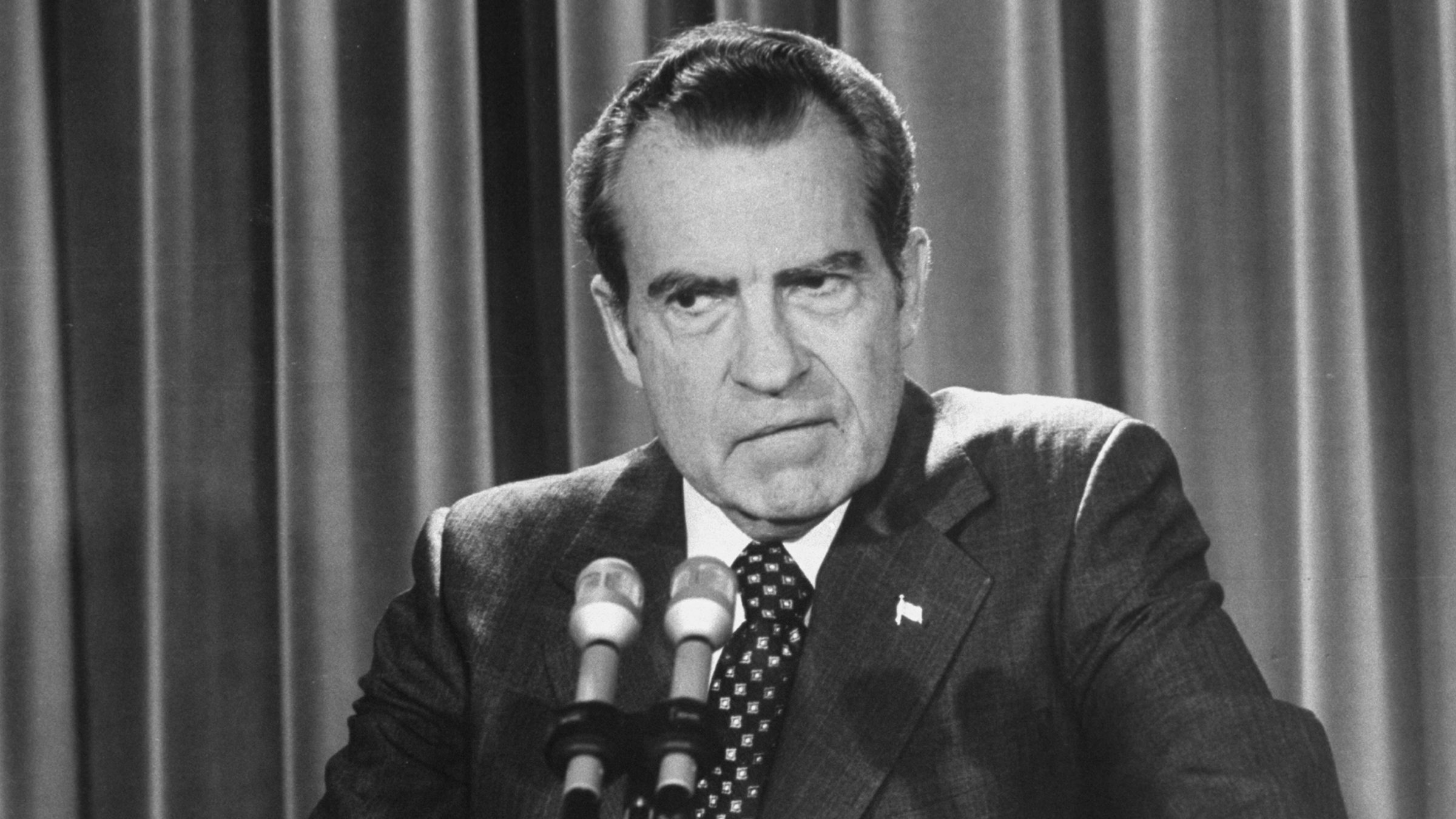Whenever Democrats face setbacks on a national level, the murmuring begins. Maybe this federalism thing is worth a shot? Yeah, the whole “states’ rights” argument has a pretty sketchy past, but that’s old federalism. We can do something new, something good and progressive instead!
Federalism as a concept is pretty straightforward: It simply means that power is divided between states and the national government. Things like national security are centralized in Washington, while issues like education and most criminal law enforcement are left to the states. Numerous aspects of the U.S. version of federalism are also designed to protect the power of states from incursions by the national government: for example, voting, representation in Congress, and appropriations are all organized around state borders.
Historically, the most prodigious defenders of federalism have been Southern politicians determined to protect slavery—and then, after the Civil War, to protect segregation, economic exploitation, and brutal white supremacist violence. Since then, arguments about “states’ rights” have been deployed as racist dog whistles to appeal to Southern voters. The most famous example of this is Richard Nixon’s so-called “Southern Strategy,” which was in many ways revived and adopted by Donald Trump in 2016.
But in recent years, some on the left have begun to wonder if federalism can be salvaged from this racist history. The argument for progressive federalism goes something like this: The division of power need not have an inherent political valence. Instead, it can be a neutral tool, employed towards achieving progressive ends just as easily as conservative ones. Moreover, dividing power has some serious benefits; at the local level, smaller minority groups may have more of a voice in the political process. And though we hate to say the quiet part out loud, deep down, progressives who sing the praises of federalism are often reassuring themselves that no matter how crazy things get in Florida or Texas, New Yorkers will be fine.
These arguments are interesting, even appealing, in the abstract. But we live in the dark, bleak real world, where the costs of abstract hypotheses outlined in law review articles are borne by real people. Even putting aside American federalism’s origins as a handout for chattel slavery, in a large country where minorities are heavily concentrated in a few states and states vary widely in size, population, and wealth, federalism isn’t neutral. Rather, federalism structurally favors the whitest, least religiously diverse, most conservative portions of the country.
Federalism is the bedrock of some of our most anti-democratic national institutions. The Electoral College so dramatically favors small states that Donald Trump won the presidency despite getting almost three million fewer votes. The Senate is even worse; although control is currently split between Republicans and Democrats, the 50 Democratic senators represent more than 41 million more people. That means every individual represented by a Democratic senator is about 40 percent less “represented” than someone in a state with a Republican senator. And, of course, there is the Supreme Court, where fully half of the six members of its conservative supermajority were nominated by a president who lost the popular vote.
Federalism is also the linchpin of cynical conservative ploys to undermine democracy and implement Republican policy priorities. Although conservatives typically praise the freedom to discriminate against vulnerable communities that federalism affords, when federalism ceases to serve those ends, they reliably prioritize enacting their agenda.
Consider the shift from Chief Justice John Roberts’s ode to federalism in Shelby County v. Holder, in which the Court gutted the Voting Rights Act to protect the “equal dignity of the states,” to the complete lack of deference to the states when in Wisconsin Legislature v. Wisconsin Elections Commission, which threw out Wisconsin’s electoral maps in favor of maps more favorable to Republicans. Consider the lightning transition from Justice Antonin Scalia’s argument in Planned Parenthood v. Casey that Roe illegitimately siphoned power from the states to the total absence of federalism interests in Justice Samuel Alito’s leaked draft in Dobbs v. Jackson Women’s Health Organization, all while Republican senators openly ponder a national six-week abortion ban once Roe is overturned. Consider Bush v. Gore, a doctrinally ungrounded Supreme Court intervention that overturned the Florida Supreme Court’s interpretation of Florida state law, stopped the recount of ballots in Florida, and handed the 2000 election to the Republican candidate, George W. Bush.

When you see someone violating states’ rights (Photo by Steve Northup/Getty Images)
In theory, federalism should function as a safety valve—a mechanism to experiment with various policy solutions to contentious national problems. It should increase the likelihood that voices that are drowned out at the national level can be heard at the state or local level. Instead of having one winner in every policy battle, devolution to the states increases the odds of multiple winners and decreases the ferocity of political fights.
But that theory requires mutual respect, a concept that is long gone from American politics, to the extent it ever existed in the first place. In reality, federalism is a one-way ratchet—an argument to take “liberal issues” out of the national sphere by returning them to the states until Republicans have the power to enforce their will nationally.
Thus, even if you are willing to accept that autonomy for California is worth autonomy for Texas, that isn’t the actual tradeoff. The tradeoff is California and New York being able to do a few good things, and Texas and Missouri being able to do some bad things, and while also able to enforce their will nationally via the Senate, the Electoral College, and the Court.
To the extent that progressives embrace federalism at all, they should do so as cynically and temporarily as the right does. We live in an archaic political structure with a dysfunctional national government where large portions of the country are run by lunatics seeking to oppress, terrorize, and control substantial portions of the population. Those opposed to this tyranny should exercise state power where possible, because those opposed to tyranny must do something to oppose it. But progressives should simultaneously recognize what the right has long known: that federalism, like every other fancy theory you learn about in constitutional law, has no intrinsic value apart from the substantive outcomes it delivers.
Moreover, progressive should embrace the fact that a significant proportion of state legislation is in truth profoundly anti-federalist. A fundamental principle of federalism is that rich white people should be in charge states are equal, distinct, sovereign actors. Thus, the “appropriate” federalist solution to abortion is each state determining the rights of the reproductive class within their borders, and respecting the decisions of their sister states. But when each side believes the other to be profoundly immoral, “mutual respect” starts to look more like complicity and abandonment as activists demand action to undermine other states’ experiments. Conservative legal groups have spent decades challenging blue state gun restrictions, and have already begun laying the legal groundwork for a national abortion ban. More recently, states like Missouri are floating proposals to make it illegal for their citizens to travel elsewhere for abortion care.
On the left, some blue states are starting to play the anti-federalism game. Connecticut recently became the first state to pass a safe-state law for transgender and abortion refugees. Oregon recently approved $15 million to help cover abortion expenses for out-of-state patients. California is considering numerous proposals aimed at becoming a “sanctuary” for pregnant people across the country when Roe is overturned. Lawmakers there are also pushing a bill, modeled after Texas’s vigilante abortion ban, that would allow California residents to sue manufacturers, sellers, and distributors of certain guns and collect a bounty for their efforts.
Despite the appeal of these blue state wins, progressives should be cautious about the ways in which strategically embracing federalism legitimizes a tool that was designed principally to further conservative ends. This is particularly true given that the staunchly conservative Court is the ultimate arbiter of the balance of power between states and the federal government, and the decider of which rights are “important” enough to deserve national protection. Take for example, NAMUDNO v. Holder, an 8-1 Supreme Court decision that pared back the protections of the Voting Rights Act in 2009. The decision is full of language about the importance of the states and the scourge of national interventionism, but the liberals on the Court joined it, likely because the holding was pretty narrow and didn’t do as much damage as it could have.
Four years later, the Court cited NAMUDNO dozens of times in Shelby County, which gutted the Voting Rights Act due its supposed “substantial federalism costs.” In a now-famous dissent, Justice Ruth Bader Ginsburg characterized the Court’s invalidation of federal protections for Black voters as “like throwing away your umbrella in a rainstorm because you are not getting wet.” In rebuttal, Chief Justice John Roberts pointed to her vote in NAMUDNO just four years prior.
Wins are wins, and progressives should take them whenever possible. But state laws aimed at protecting people regardless of where they live are not examples of the value of federalism. They are examples of empathetic good governance that can occasionally exist despite the failures of our federalist system, not because of it. They are the occasional wins in the slot machine that keep you coming back even though you know the game is rigged.

